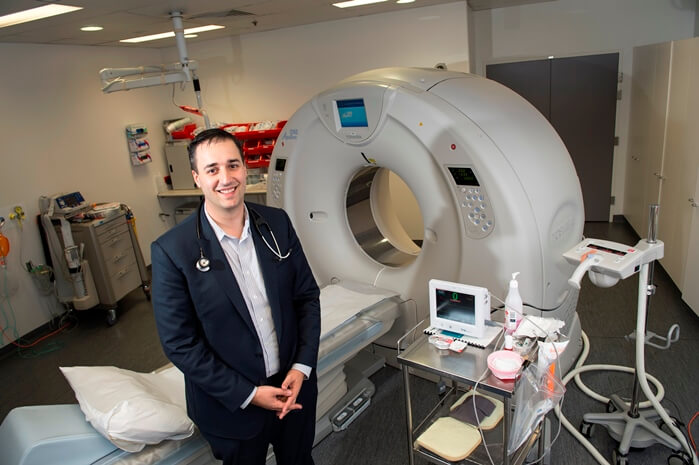Every year between May 3 – 9 is Heart Week. It’s a time when healthcare professionals are encouraged to engage with their patients about their risk of developing cardiovascular disease and ways to lower this risk.
Dr Arthur Nasis, who is an internationally trained clinical cardiologist, academic cardiologist and cardiac imaging specialist, wants to shine a spotlight on the symptoms of a heart attack, as well as which diet can help you reduce your risk of heart disease in the first place.
Am I having a heart attack? Know the symptoms:
A heart attack happens when one of the coronary arteries, which sit on the heart muscle and supply blood to it, suddenly become blocked. This stops blood getting to the heart muscle, which can result in damage or scarring of the affected part of the heart muscle if left untreated for too long.
It is the most common cause of death in Australia, with an average of 21 people dying from a heart attack in Australia every day. Also, one Australian is admitted to hospital with a heart attack every nine minutes.
Speaking to The Greek Herald, Dr Nasis says recognising heart attack symptoms and calling Triple Zero (000) immediately if a heart attack is suspected could be “life-saving.”

“The most common heart attack symptom or warning sign is chest discomfort or pain that can spread to the arms, throat, jaw or back. Unlike chest pain caused by other causes, pain caused by a heart attack usually persists for more than 10 minutes,” Dr Nasis says.
“The pain is often associated with the following symptoms, which can also occur during a heart attack without chest pain: dizziness, light-headedness, faintness, nausea, vomiting, breathlessness, and sudden-onset sweating.”
If you have chest pain or other heart attack symptoms outlined above, or if the symptoms are severe and getting worse, call Triple Zero (000) immediately.
Which diet reduces the risk of developing heart disease?
The most common cause of a heart attack is coronary heart disease (also known as ischaemic heart disease). This refers to the disease process that leads to the narrowing of one or more coronary arteries due to a build-up of fat, cholesterol and other inflammatory materials, referred to as coronary plaque. The narrowed artery causes reduced blood flow to the heart muscle, which can lead to chest pain called angina.
According to Dr Nasis, contemporary eating patterns and poor diets in Australia are a major risk factor for the development of heart disease, as well as other chronic diseases including type 2 diabetes and some cancers.

But a recent review article in the Journal of American College of Cardiology found that intermittent fasting (with a daily time-restricted 8 to 12 hour eating window), combined with a Pesco-Mediterranean diet, may be the ideal diet to lower risk of heart disease.
“A Pesco-Mediterranean diet is essentially the same as a Mediterranean diet, but with a greater importance placed on the fish and seafood components of the diet,” Dr Nasis tells The Greek Herald.
“Combined with time restricted eating, [the diet] is a safe, sensible, and healthy way of eating to minimise the risk of developing heart disease.”
But of course, the cardiologist says a healthy diet “is only one line in our defence” to minimise the risk of heart disease.
“We must not forget regular exercise, avoiding smoking, adequate sleep, managing stress, limiting alcohol consumption and regular heart health checks with our GP,” Dr Nasis concludes.

